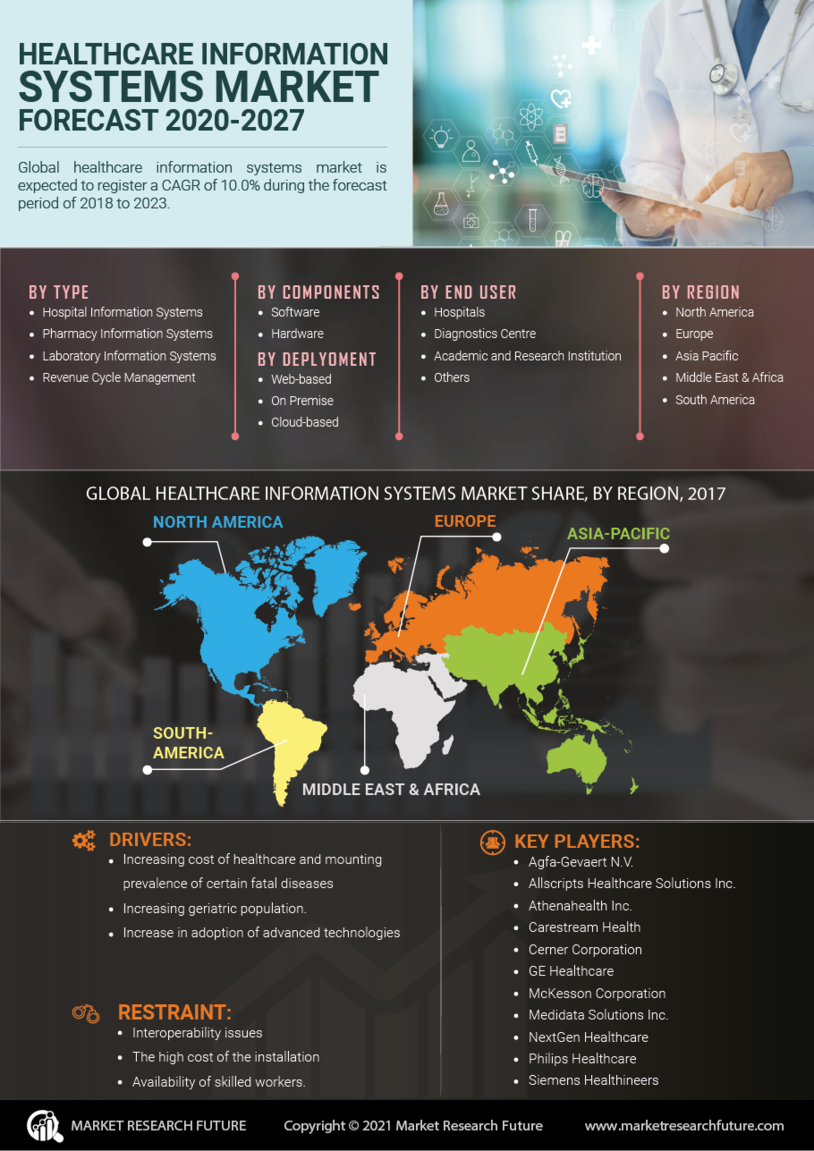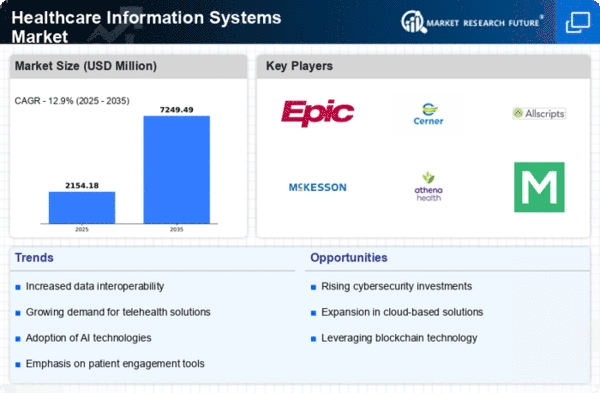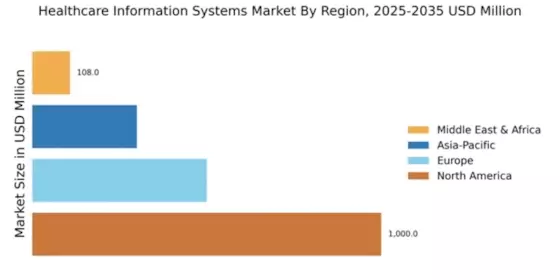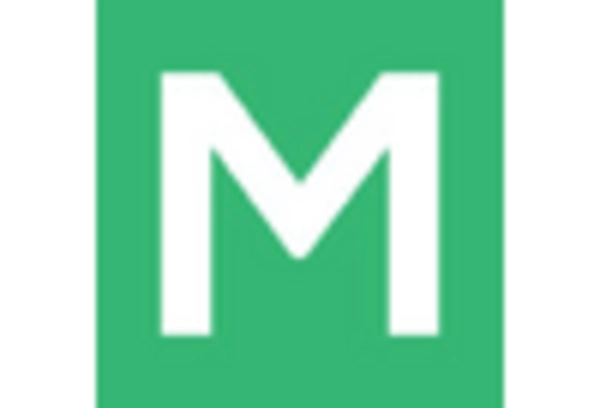Market Growth Projections
The Global Healthcare Information Systems Market Industry is projected to experience substantial growth in the coming years. With an estimated market value of 537.1 USD Billion in 2025, the industry is on a trajectory towards reaching 1538.7 USD Billion by 2035. This growth reflects a compound annual growth rate of 11.1% from 2025 to 2035, indicating a robust demand for healthcare information systems. Factors contributing to this growth include technological advancements, increasing healthcare expenditures, and a heightened focus on patient-centric care. As the market evolves, it is expected to adapt to emerging trends and challenges, positioning itself as a critical component of the global healthcare landscape.
Government Initiatives and Funding
Government initiatives play a pivotal role in shaping the Global Healthcare Information Systems Market Industry. Various national health policies emphasize the adoption of advanced healthcare technologies, often accompanied by substantial funding. For instance, initiatives aimed at digitizing health records and enhancing telehealth services are gaining traction globally. Such policies not only facilitate the implementation of healthcare information systems but also encourage public-private partnerships. As governments allocate resources to improve healthcare infrastructure, the market is expected to benefit significantly. This support is likely to propel the market towards an estimated value of 78.1 USD Billion by 2035, underscoring the impact of governmental involvement.
Growing Adoption of Telehealth Services
The Global Healthcare Information Systems Market Industry is witnessing a growing adoption of telehealth services, which has become increasingly vital in modern healthcare delivery. Telehealth platforms facilitate remote consultations, monitoring, and management of patient health, thereby expanding access to care. This trend is particularly beneficial for rural and underserved populations, as it reduces barriers to healthcare access. The rise of telehealth is supported by advancements in communication technologies and a shift in patient preferences towards more convenient care options. As telehealth continues to gain traction, it is expected to significantly influence the market dynamics, further emphasizing the importance of robust healthcare information systems.
Increasing Focus on Patient-Centric Care
The Global Healthcare Information Systems Market Industry is increasingly influenced by a shift towards patient-centric care. Healthcare providers are recognizing the importance of engaging patients in their own care processes, which necessitates the use of advanced information systems. These systems enable personalized treatment plans, real-time health monitoring, and improved communication between patients and providers. As a result, healthcare organizations are investing in technologies that enhance patient experience and satisfaction. This focus on patient-centricity is expected to drive market growth, as it aligns with broader trends in healthcare that prioritize quality and outcomes, further solidifying the role of information systems in the Global Healthcare Information Systems Market Industry.
Technological Advancements in Healthcare IT
Technological advancements are a significant catalyst for growth in the Global Healthcare Information Systems Market Industry. Innovations such as artificial intelligence, machine learning, and big data analytics are transforming how healthcare data is managed and utilized. These technologies enable healthcare providers to analyze vast amounts of data, leading to improved decision-making and operational efficiencies. The integration of advanced analytics into healthcare information systems is likely to enhance predictive capabilities and patient outcomes. As these technologies continue to evolve, they are expected to contribute to the market's projected compound annual growth rate of 11.1% from 2026 to 2035, highlighting their transformative potential in the Global Healthcare Information Systems Market Industry.
Rising Demand for Integrated Healthcare Solutions
The Global Healthcare Information Systems Market Industry experiences a notable surge in demand for integrated healthcare solutions. This trend is driven by the need for seamless data exchange among various healthcare providers, which enhances patient care and operational efficiency. As healthcare systems become increasingly complex, the integration of electronic health records, billing systems, and clinical decision support tools is paramount. In 2025, the market is projected to reach 43.2 USD Billion, reflecting a growing recognition of the importance of interoperability in healthcare. This integration not only improves patient outcomes but also reduces costs, making it a critical driver in the Global Healthcare Information Systems Market Industry.


















